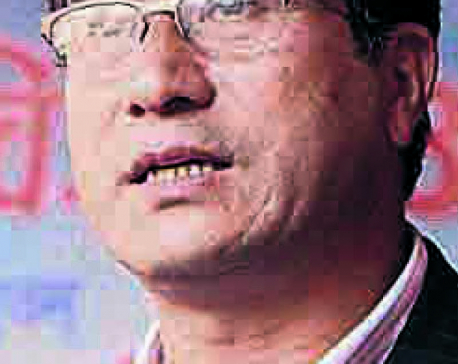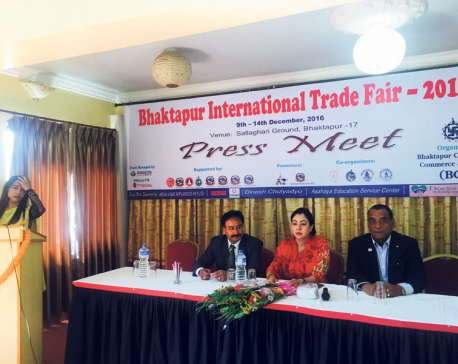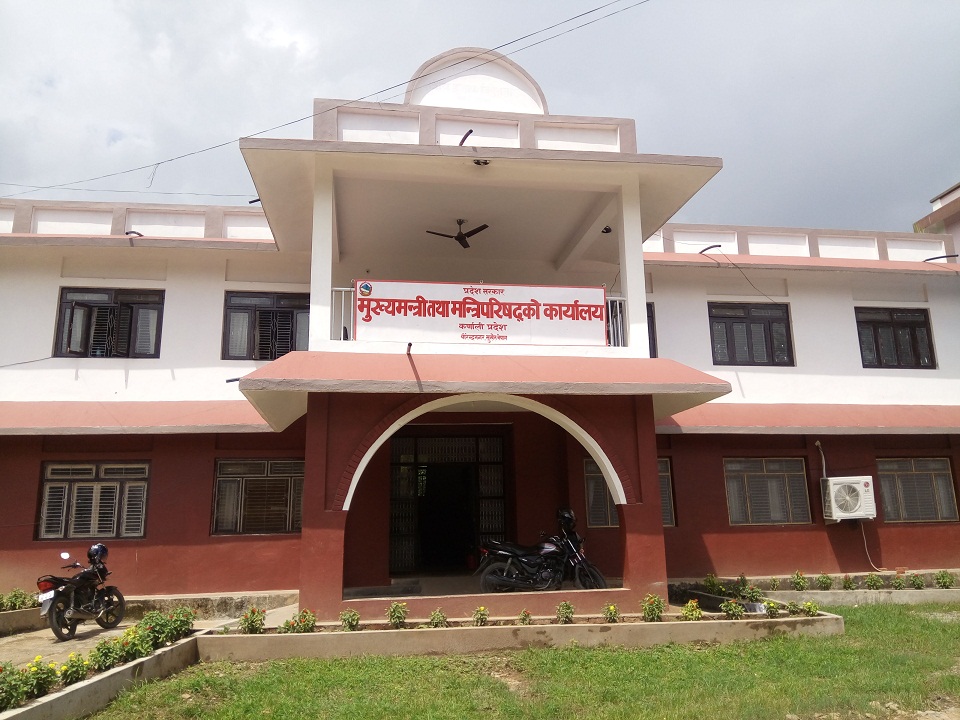
OR
KATHMANDU, July 25: Bhaktapur is a city of culture and traditions. It is also identified with the famous yogurt known as ‘juju dhau’. It is also referred to as King of Yogurt.
In Newari language, ‘juju’ means ‘king’ and ‘dhau’ refers to ‘yogurt’.
There is a famous story about the ‘juju dhau’ of Bhaktapur. Malla Kings had organized a yogurt competition. People from Kathmandu, Bhaktapur, and Lalitpur took part in the competition. As part of the competition, they offered yogurt to the then kings. Kings liked the yogurt offered by the Bhaktapur-residents, which is known as ‘juju dhau’ today.
The yogurt is not only consumed in Nepal but it is also exported to foreign countries. We can see many locals and foreigners enjoying the flavor of juju dhau.
Making the juju dhau is not an easy process.
Migendra Pradhananga, 45, a resident of Bolanche, Bhaktapur is a juju dhau businessman. The yogurt shop which was owned by his father is one of the oldest yogurt shops at Bhaktapur. Pradhananga’s routine begins at 6 in the morning. Earlier, the milk required for the yogurt was collected within the Bhaktapur district; however, it is not sufficient at the present. So it is brought from Kavre, Nagarkot, Hetauda, and Chitwan.
Buffalo milk is better than cow milk to produce juju dhau because buffalo milk contains more lacto than cow milk.
Pradhananga laments the scarcity of buffalo milk caused by a situation in which people are attracted to cow farming these days. Mrigendra uses 5-10 cans of milk daily to make juju dhau.
How to make juju dhau?
- A clay pot known as ‘Kataaro’ is soaked in water for several hours and it is drained completely.
- Milk is boiled, sweetened and mixed with culture.
- The milk is poured in ‘Kataaro’.
- It is then placed in a warm area, on a bed of paddy husks.
After that, culture is added
It is covered with another ‘Kataaro’ on top and wrapped in several thick cotton blankets to maintain a warm temperature while the yogurt sets.
As the clay pots are absorbent, the excess liquid from the yogurt slowly evaporates, leaving a delicious, thick, smooth and creamy yogurt in three hours.
Business of juju dhau is at high risk of extinction due to scarcity of buffalo milk. It is more than business. It is also part of Newari economic culture with historical importance. Therefore, efforts need to be made at both governmental and non-governmental levels to give continuity to this Newari culture.
You May Like This

Road victim’s kin block both main highways in Bhaktapur
BHAKTAPUR, Feb 7: The family members and kin of the victim killed in the road accident have blocked both the... Read More...

Prajapati elected Bhaktapur mayor
BHAKTAPUR, May 25: Childhood dream of former lawmaker and now the newly elected mayor of Bhaktapur, Sunil Prajapati, was to become... Read More...

Bhaktapur International Trade Fair in the offing
BHAKTAPUR, Oct 27: Bhaktapur Chamber of Commerce and Industries (BCCI) is organizing Bhaktapur International Trade Fair 2016 from December 9 to... Read More...


Just In
- MoEST seeks EC’s help in identifying teachers linked to political parties
- 70 community and national forests affected by fire in Parbat till Wednesday
- NEPSE loses 3.24 points, while daily turnover inclines to Rs 2.36 billion
- Pak Embassy awards scholarships to 180 Nepali students
- President Paudel approves mobilization of army personnel for by-elections security
- Bhajang and Ilam by-elections: 69 polling stations classified as ‘highly sensitive’
- Karnali CM Kandel secures vote of confidence
- National Youth Scientists Conference to be organized in Surkhet

















Leave A Comment